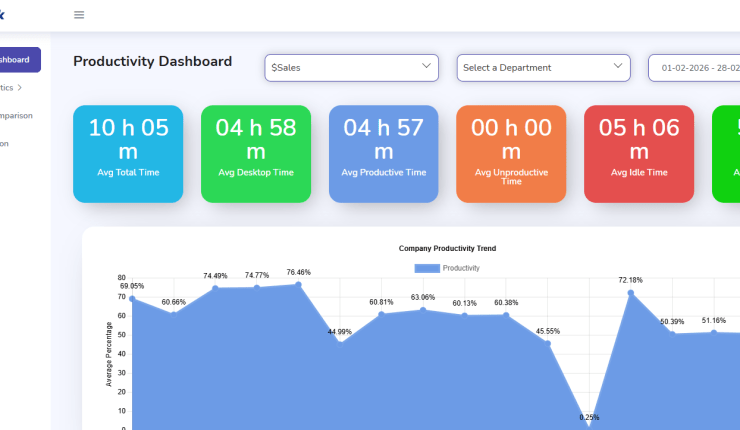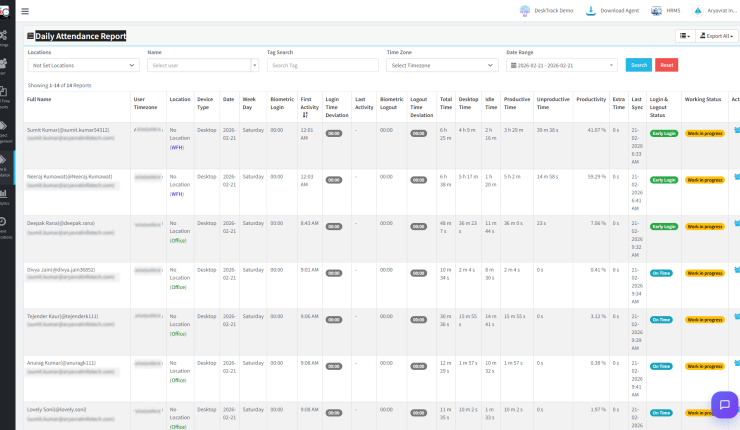The new year is approaching so are the constant workplace challenges and ever-expanding to-do lists. What is supposed to be the same is our habit of procrastinating. To overcome this challenge, one needs to understand the root issue rather than find a quick fix.
In today’s world where clarity is elusive, it is essential to find a tool or framework that makes it easy to accomplish goals. Procrastination affects approximately 95% of individuals, damaging performance and causing unnecessary stress to the workforce.
In this blog, we will learn the common reasons for procrastination and the effects of procrastination. Additionally, we will also discuss different strategies for how to overcome procrastination in the workplace in 2024.
What is Procrastination?
Procrastination is the voluntary yet unnecessary habit of delaying or postponing essential tasks. It often carries negative consequences and involves putting off what can be done now. It is a tendency that isn’t synonymous with laziness.
Procrastination means delaying tasks until the last minute or engaging in trivial work instead of tackling important responsibilities. It’s a form of time inconsistency, where immediate gratification takes precedence over future rewards.
Procrastination can damage performance, harm reputations, and induce unnecessary anxiety. It is essential to understand the distinction between procrastination and laziness, as the former involves an active choice to engage in more enjoyable or easier tasks, while the latter reflects apathy and unwillingness to act.
Get rid of procrastination with DeskTrack’s time tracking software for employees.
Why do People Procrastinate at Work?
The common reasons why people procrastinate at work are:
Don’t Know How to Begin
When people are unaware of where to begin. There can be many reasons why people fail to begin tasks. The prominent reasons can be unrealistic expectations from the seniors and managers. This can cause stress of being perfect and therefore people get confused about where to start. The other reason is unclear or vague instructions.
Presence of Multiple Priority Tasks
When people have different priority tasks or a long to-do list to complete, it can lead to procrastination at work. The pressure from seniors and managers to complete different tasks before others lead to the habit of keeping multiple unfinished tasks.
One other factor that also leads to procrastination due to unfinished tasks is a lack of interest in the tasks.
A Future Deadline
The availability of plenty of time for project deadlines also leads to procrastination. When people know that they have enough time to complete tasks, they tend to spend more time on leisure activities and forget to complete productive tasks, leading to procrastination.
When You Are Scared of Failure
People also procrastinate when they are afraid of failing. The fear of failure makes them hesitant to begin the work, leading to procrastination.
The mindset that You Perform Better Under Pressure
People generally perceive that they deliver their best when performing under pressure. This mindset leads to procrastination of tasks that could have been avoided.
Lack of Motivation
Everyone needs motivation to work. Therefore, when people are not motivated enough they tend to procrastinate their work.
Why Overcome Procrastination at the Workplace?
Having known the common reasons why people procrastinate at work, let us know why it is essential to avoid procrastination at work.
Procrastination reduces an individual’s potential to work and can lead to an undermined career. This can also be a reason to disrupt teamwork, reduce morale and can also cause depression and job loss.
Overcome Procrastination with DeskTrack.
5 Ways to Overcome Procrastination at the Workplace
Procrastination is a common challenge in the workplace that affects productivity and creativity. Overcoming this habit is crucial for achieving individual and team goals. Let us find the five effective strategies to overcome procrastination in the workplace and enhance overall productivity.
Setting Team and Departmental Goals
One powerful way to combat procrastination is by establishing clear team and departmental goals. Aligning with a common objective can create a sense of purpose and urgency. This shared vision encourages employees to stay focused and motivated, reducing the likelihood of procrastination.
Set Clear Expectations
Procrastination often comes from uncertainty or lack of clarity regarding tasks and expectations. To counter this, it’s crucial to set clear and realistic expectations for individual roles and projects. It is essential to clearly outline responsibilities, deadlines, and desired outcomes. When employees understand what is expected of them, they are more likely to complete tasks efficiently, minimizing the reasons to procrastinate.
Read our latest blog on average working hours in India.
Focus on Goals and Fight Perfectionism
Perfectionism can be a major blockage to productivity, as individuals may delay tasks to achieve unattainable levels of perfection. It is essential to encourage a goal-oriented mindset over a perfectionist one. Also, emphasizing the importance of progress and completion rather than flawless execution is necessary. This shift in perspective can reduce the pressure associated with perfectionism. It makes tasks more manageable and less prone to procrastination.
Break Bigger Tasks into Smaller Tasks
Large and daunting tasks can easily lead to procrastination, as the greater pressure of the work can be overwhelming. To overcome this, it is essential to encourage employees to break down bigger tasks into smaller, and more manageable components.
This not only minimizes the workload but also allows individuals to focus on one step at a time. Also, it is essential to celebrate the completion of each smaller task to provide a sense of accomplishment and motivate individuals to continue making progress.
Pre-plan Project Deadlines
Procrastination often evolves in an environment where deadlines are vague or distant. Combating procrastination of this type requires a proactive approach to project planning. Also, encouraging team members to set their deadlines for various project milestones can be helpful. This not only helps in tracking progress but also promotes a sense of accountability. Breaking down a project into smaller deadlines makes the overall timeline more simple, reducing the chances of procrastination.
Click here to deploy employee monitoring software.
Final Thoughts
Procrastination is a common unwanted habit we suffer from in the workplace. Although it is unavoidable for most people, avoiding it is essential to be productive at the workplace.
Overcoming procrastination in the workplace requires a combination of strategic goal-setting, clear communication, and a shift in mindset. Teams can create an environment that promotes productivity and minimizes the impact of procrastination on individual and collective success by implementing different strategies.


















